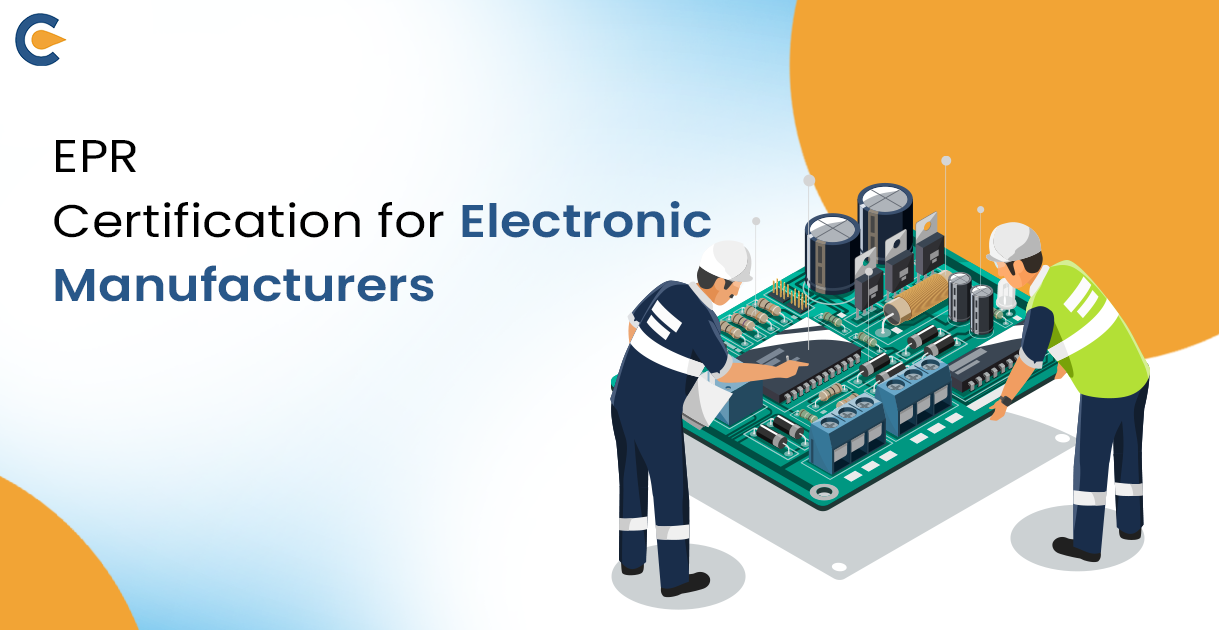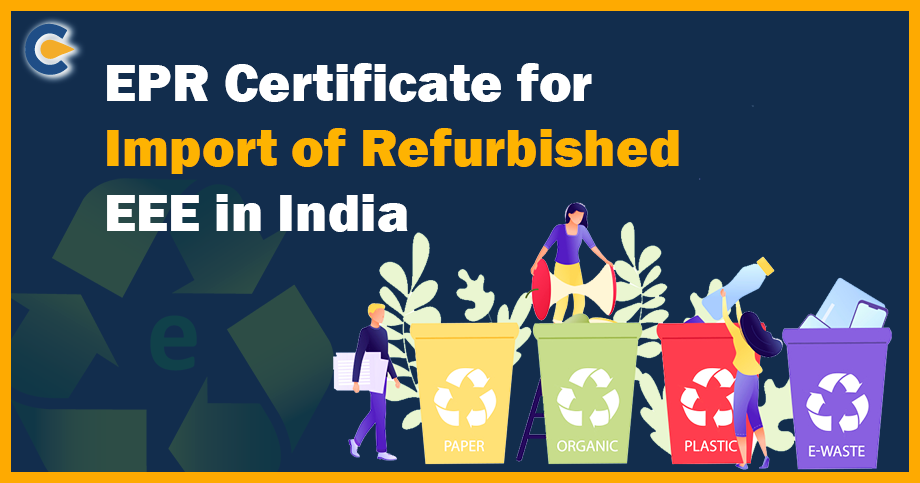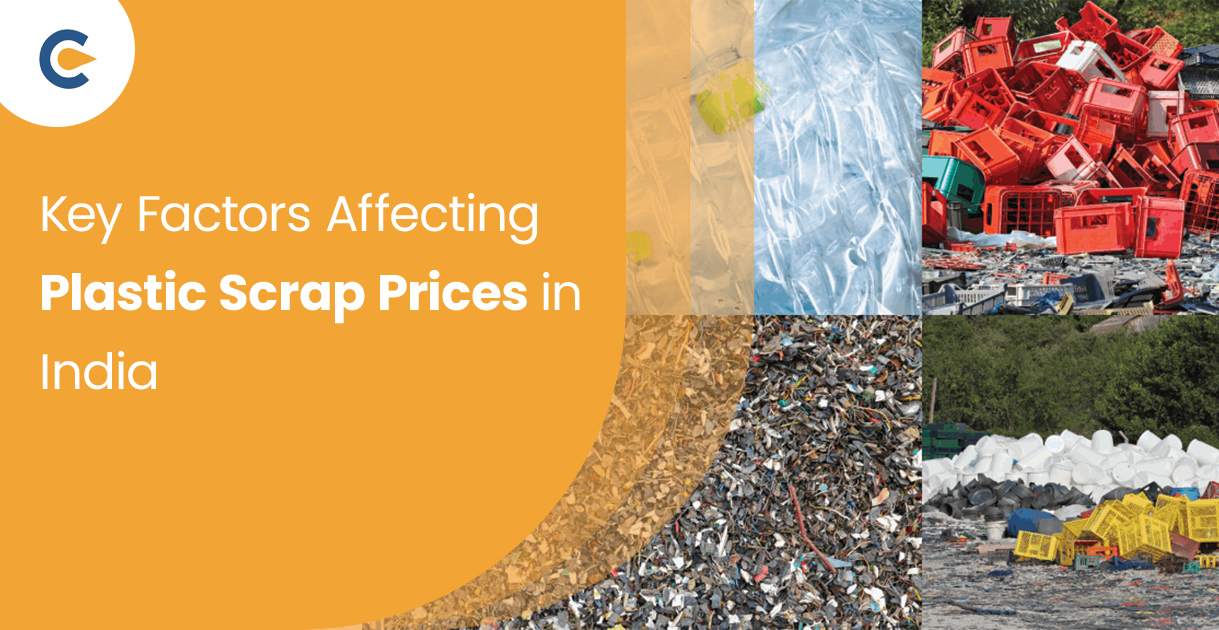The manufacturing, sale, transfer, purchase, collection, storage, and processing of e-waste, or electrical and electronic equipment which is listed in Schedule I of Electronic EPR Certification, as well as their components, parts, consumables, and prevents that make the product operational, as well as following the requirements and guidelines, are all within the purview of the E-waste Management Rules, 2016, which apply to manufacturers, dealers, dismantlers, consumers, recyclers, bulk consumers, refurbishers, collection centres, and e-retailers. The following are the two main product types that call for EPR authorization.
- Telecommunications equipment and information technology
- Electrical and electronic consumer goods
What is EPR?
Extended Producer Responsibility is referred to as EPR. Extended Producer Responsibility, or EPR for short, requires all producers of electrical and electronic equipment to transfer or move their waste to a licensed recycler or dismantler so that the garbage is treated environmentally. On behalf of the Ministry of Environment, Forests, and Climate Change (MoEFCC) of the Indian government, the Central Pollution Control Board, or CPCB, is in charge of providing EPR authorization.
Environmental Protection Policy (EPR) states that importers, manufacturers, and retailers of those materials should continue to be responsible for the sustainable as well as secure take-back, recycling, and disposal of goods and their packaging at the end of their lifecycle instead of shifting this responsibility to the government, the public, or the resource industry. Governments all across the world utilize it as a vital instrument.
The E-waste management regulations of 2021, which are the first set of regulations of their kind, deal with e-waste and the producer’s obligation to set up collection centres, either independently or in cooperation with others, to ensure the waste products are disposed of safely. After a while, the obligation of the manufacturer was expanded with the adoption of the amendment, which calls for the inclusion of all items that are required for EPR permission.
What is EPR Certification?
A company can demonstrate that it has adopted sustainable practices and upheld the extended producer responsibility principles by presenting its EPR certificate. It shows a dedication to reducing the environmental effects of goods at every stage of their lifespan, from manufacture to disposal. For enterprises, acquiring an EPR certificate has several advantages. First of all, demonstrating their dedication to environmental care improves their reputation. Since many government organizations, merchants, and customers prefer items with EPR certification, it also opens doors to diverse markets and business prospects. It also lessens the possibility of fines or penalties and assists firms in adhering to environmental standards.
Eligibility Criteria for EPR certification for electronic manufacturers
The entities listed below are required to register on the central site in order to get the Waste Management EPR Certification for electronic manufacturers:
- Owner of the brand (BO), producer (P), and Importer (1)
- Plastic Waste Processor involved in industrial composting, waste to energy, waste to oil, and recycling (a, b, and c).
The following are the requirements for qualifying for these entities:
- Anyone who works in the importation or production of electronics and is an importer.
- The only organizations required to register as PWPs are those that process plastic waste through recycling, co-processing, waste to energy, and waste to oil.
- PIBOS must register with the relevant SPCB/PCC if they are operating in one or two states or UTS.
Merits of EPR certification for electronic manufacturers
Below mentioned are some of the advantages of EPR Certification for electronic manufacturers:
Cooperation:
By encouraging manufacturers to work with recycling facilities, EPR registration for e-waste promotes effective and ethical e-waste recycling procedures.
Recovery of the resources:
EPR registration for e-waste minimizes the environmental effect and promotes sustainable resource management by allowing maximum resource recovery from e-waste through partnerships with specialized facilities.
Public knowledge:
By encouraging manufacturers to launch campaigns that increase public awareness of the significance of recycling electronic equipment, EPR registration encourages knowledge and education about e-waste recycling activities.
Protection of the environment:
E-waste By ensuring a more methodical and accountable approach to e-waste management, EPR registration contributes to the preservation of natural resources, the decrease of harmful compounds in the environment, and environmental protection.
Supplementary BIS for EPR:
The EPR certificate establishes manufacturing standards, much like the BIS certificate does. Thus, certifications for Extended Producer Responsibility and BIS are equally significant.
Motivate others:
Use EPR to become an inspiration to others. Similar to the DELL EPR certificate, you may leave your imprint and inspire the world. In the end, CPCB Extended Producer Responsibility registration matters since it leads to EPR in waste management. Through the use of EPR registration, we lessen the harm that electronic waste does to the environment and to people’s health, helping to create a more sustainable and healthy future.
E-waste accountability:
Electronic equipment manufacturers are held accountable for creating e-waste collection and recycling systems, guaranteeing appropriate disposal, and averting risks to the environment and public health through EPR registration.
Treatment of electronic waste:
The EPR issuing Authority offers recommendations for the proper handling of e-waste. It will lessen the adverse ecological effects on our surroundings.
Reduce Plastic Pollution:
One way to reduce plastic pollution is by using the EPR registration certificate for plastic garbage. Consequently, if plastic is the main raw material in your product, you must have an EPR certificate for plastic waste.
Producing Renewable Products:
It Takes More Than Just Producers. It’s the product as well. Making a better product with renewable resources is encouraged by the EPR product responsibility.
Product-building Utilizing Sustainable Sources:
It’s not just the manufacturer. It’s the product as well. Making a better product with renewable resources is encouraged by the EPR product responsibility
Documents for EPR certification for electronic manufacturers
The below-mentioned list is the basic essential list of documents for EPR Certification for electronic manufacturers:
- Manufacture and Importer’s documents for address proof
- Proof of manufacturing unit’s GST registration
- Compliance of RoHS – self-declaration in a format prescribed
- Agreement document – Copies (With recyclers, dismantlers, dealers, treatment, storage collection centres, and disposal facilities.
- Import-Export code letter
- Company registrar/Directorate of Company certificate (Copy)
- Technical Document:
- Product Description
- Materials documents
- Declaration of suppliers
- Analytical test results
- PAN card
- TIN details
- Certificate of incorporation
- EPR plan documents
- Awareness program and related project documents and proposal
- PCC/SPCBs authorization (Copy of the same)
- IEC for importers
- EPR-related estimated budget-related information
- Licenses and Permissions form different and pertinent ministries for product marketing and business.
Process of EPR certification for electronic manufacturers
The process of EPR certification for electronic manufacturers:
Step – 1 Evaluate the prerequisites for registration:
By reading the EPR certificate format, you may comprehend the criteria of the EPR pollution certificate.
Step – 2 Gathering of Documents:
As stated in the preceding section, compile and acquire the necessary documentation.
Step – 3 Filing of EPR Applications:
The next step is submitting the online application for an EPR certificate and the necessary paperwork. Next, send the application and the required payment for the EPR certificate to the CPCB office. To complete this stage, you must fill out an online EPR registration form that contains a lot of intricate information.
Step – 4 CPCB Evaluation of the Application
The central board’s evaluation of the online application for EPR registration will be given. Disparities will be fixed if any problems are brought up.
Step – 5 Getting the Approval Letter
Obtain the permission letter for e-waste management or the EPR certificate. It only occurs if the EPR registration costs have been paid and the EPR pollution certificate has been properly lodged.
Renewing EPR certification for electronic manufacturers
After five years of validity, the EPR certificate for e-waste needs to be renewed. The procedures to renew your E-Waste EPR Registration Certificate are as follows:
- Within sixty days of the expiration, Form-1 must be filed in order to receive a renewal.
- Renewal will be considered when the compliance report from the relevant central pollution control board or pollution control committee has been verified.
- The renewal application will be accepted if there are no violations of the authorized requirements. These details are recorded in a registry maintained by the Central Pollution Control Board.
EPR certification for electronic manufacturers: Post Registration Duties
The E-waste (Management) Rules, 2016 state that license holders must adhere to the following requirements:
- Technical documentation for required inspections should be available to holders of a RoHS registration.
- Before introducing any new products, kindly notify the relevant authorities via Enclosure A.
- Product brochures or booklets must include information regarding RoHS. Production companies ought to maintain documentation of the channels they use for their e-waste. Businesses that recycle items are also responsible for following this rule.
- Manufacturers must maintain a record of their electronic waste and submit it to the CPCB for inspections in accordance with Form 2 of these regulations.
- Following the approved EPR strategy, an accumulation technique or procedure has to be developed.
- Producers must file an annual return in form 3 to the CPCB by June 30th of each year after the end of the fiscal year to which the return relates, at the latest.
- Producers and manufacturers must adhere to approved plans for Electronic Product Registration (EPR).
Conclusion
Several procedures must be taken in order to receive an EPR certificate. An important certification for businesses looking to show their dedication to environmental sustainability is the EPR certificate. Businesses can access new markets, uphold environmental standards, and enhance their reputation by acquiring the EPR certificate. EPR certification will remain essential in encouraging sustainable practices and lowering the environmental effect of items as markets grow more ecologically aware.
Frequently Asked Questions
Extended Producer’s Responsibility is referred to as EPR. For the management of e-waste, Indian manufacturers and importers of items are required to get an EPR certificate. The Central Pollution Control Board (CPCB), a division of the MoEFCC, the Indian government, grants EPR authorization.
If you are an electrical producer, then EPR registration is everything to you. It implies that you take care of the environment in addition to providing the items. People are seeking someone who can relate to the hardships of the world. Thus, this caring quality will work to your benefit.
The Central Pollution Control Board (CPCB), a division of the MoEFCC of the Indian government, grants EPR authorization.
Having an EPR certification is a must for Producers, Importers, and Brand Owners (PIBOs).
The Extended Producers Responsibility (EPR) regulations require manufacturers and brand owners, or producers, to manage electrical and electronic equipment after it reaches its “End of life.” In other words, producers are accountable for their products after the consumer discards them.
Manufacturers can avoid legal fines by adhering to e-waste rules thanks to EPR authorization. Manufacturers will lessen their influence on the environment by managing the recycling and disposal of their goods under EPRA.
The EPR Authorization for E-waste has a five-year validity period, which can be extended later. You will need to pay the relevant costs and submit the necessary paperwork in order to renew it.
Extended Producer’s Responsibility is referred to as EPR. For the management of e-waste, Indian manufacturers and importers of items are required to get an EPR certificate. The Central Pollution Control Board (CPCB), a division of the MoEFCC, the Indian government, grants EPR authorization.
The Central Pollution Control Board (CPCB), a division of the MoEFCC of the Indian government, grants EPR authorization.
Extended Producer Responsibility, or EPR, is the term for the Extended Producer Responsibility Certificate, which is required for Indian manufacturers or importers of goods to manage e-waste.
On this path, adherence to Extended Producer Responsibility (EPR) is crucial. Manufacturers are held responsible for managing both the whole lifespan of their goods and post-consumer trash under an EPR strategy.
Brand Owners in the Micro and small categories are released from their EPR requirements. Are exporting units released from their EPR obligations? Indeed. Units focused on exports are freed from EPR requirements.
Reduce, reuse, and recycle of. Reduce the amount of e-waste you produce by making wise purchases and practising proper upkeep. Donate or sell any electronic equipment that is still in working order to reuse it. Components that are beyond repair should be recycled.
The relevant Brand Owners/Producers to whom the product is being sold must assume the EPR responsibilities if the third party does not have a brand name attached to them.
The Central Pollution Control Board’s disposal rules must be followed while disposing of electronic trash. You are then given the E-Waste Management or EPR License after demonstrating your ability to do so.
To assist in addressing the rising issue of e-waste, or used electrical and electronic equipment that contains elements that cannot be safely disposed of with typical household trash, several governments and businesses have implemented extended producer responsibility.
Every manufacturer of electrical and electronic equipment (EEE) is accountable for fulfilling the requirements of Extended Producer Responsibility (EPR). This is to guarantee that e-waste is handled and disposed of properly by channelling it to an accredited recycler or dismantler.
Micro and small MSMEs are not obligated to reach EPR objectives and are not obliged to register as CPCB EPRs.
In India, implementing Extended Producer Responsibility is required. Producers, importers, and brand owners are required by this regulation to take full responsibility for the whole lifespan of their products, including appropriate waste disposal and management.
EPR regulations have had a significant impact on reducing pollution and have greatly aided in the increase of recycling efforts. Positive results are starting to be seen across the nation.
The registration code that the EPR applicant is given after successfully obtaining certification from the Authority is known as the EPR number. The EPR registration certificate makes notice of it.
The 2016 Central Pollution Control Board (under MoEFCC) has the jurisdiction to award, renew, or reject the EPR certificate for Electrical and Electric Equipment (EEE) in accordance with Rule 13 (1) (Management) Rules. Furthermore, as per the environmental policy, the manufacturer bears the responsibility of assuming the risk of environmental damage and managing the product and its waste beyond its expiration date. As a result, it keeps track of electronic and electrical goods and e-waste.
Read Our Article: Overview of EPR for Import of Batteries











